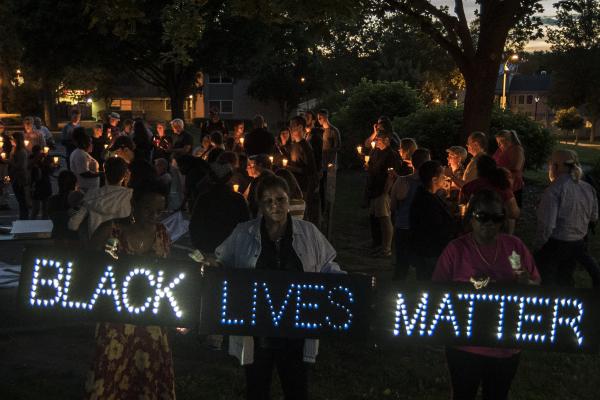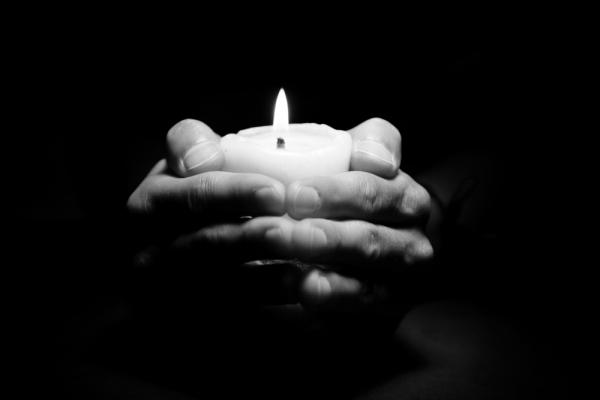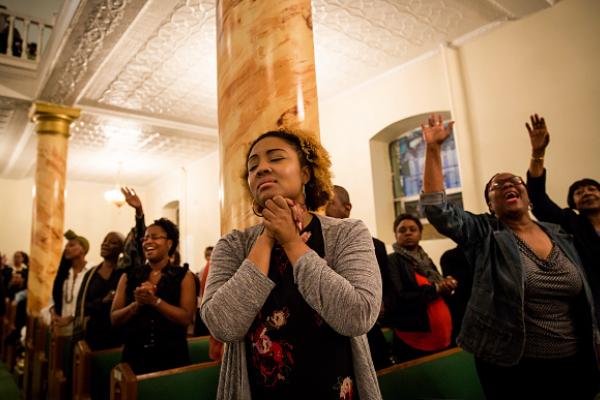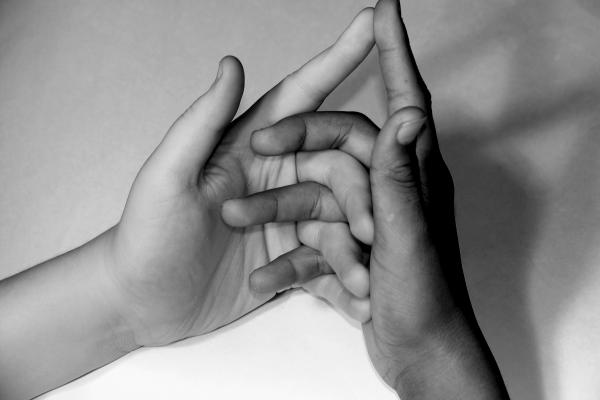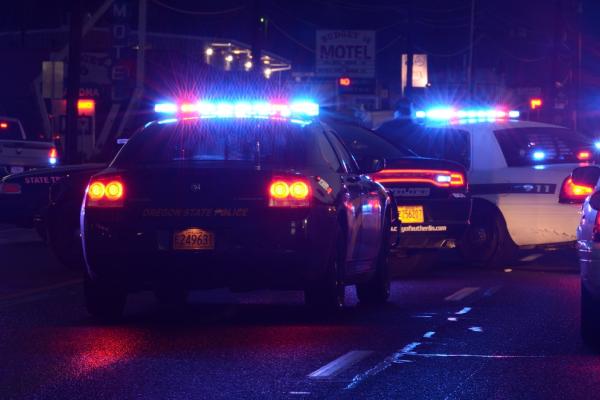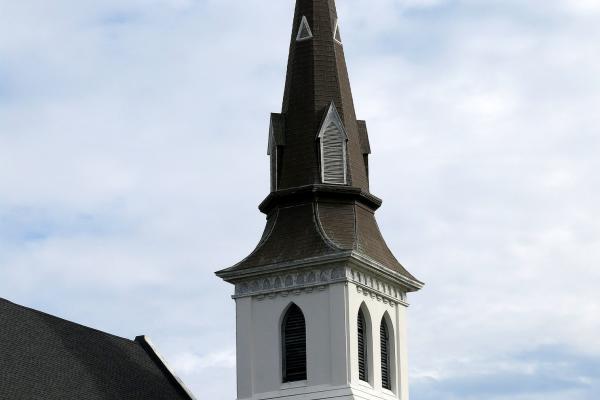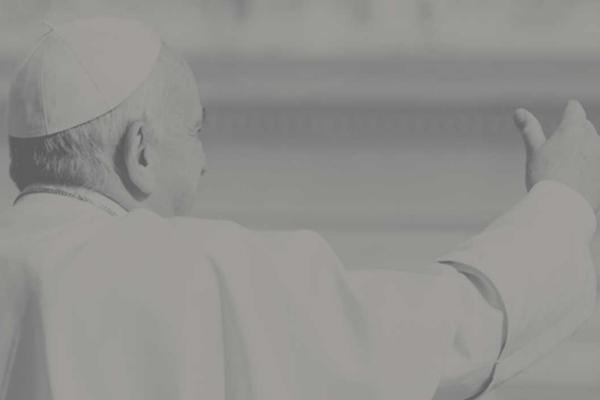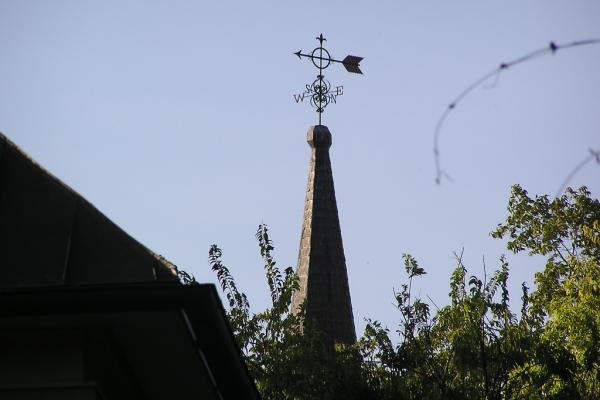I invite my Christian brothers and sisters of all racial backgrounds to join me in my prophetic grieving. Our cries cannot and should not be the same. For some of us, who inhabit black skin, our tears will be coated in rage and exhaustion. They will be punctuated by the stark feeling that we are permanently displaced in the only place we have known as home. We know that we fighting for our lives and have no choice but to cry out to God.
For others, particularly white Christians, the choice may not be as clear. Lament for Charleston cannot be separated from a challenge to the system of white supremacy that serves to protect white people and white interests. Prophetic grief requires a confession that the system of white supremacy infiltrates and shapes our worship spaces, theologies, and ethics. I have no doubt that this process will be risky for my white colleagues. Rarely does transformation occur without birthing pains. The reality of power is that while my survival is at stake, my white Christian brothers and sisters have the option to opt-out, avoid the pain, and remain silent.
We are brokenhearted by the murders of nine parishioners at the Emanuel African Methodist Episcopal Church in Charleston, S.C. We join our brothers and sisters in deep lament for the lives lost in this evil act, and our prayers go out to all of the victims, their families and their communities.
Atrocities like this wound the very soul of our nation. We must not merely attribute this horror to the depraved actions of one individual, mourn those we have lost, and move on as if there is nothing more to do. In his statement yesterday, President Obama quoted Dr. Martin Luther King, Jr.'s words in the wake of the bombing of a black church in Birmingham, Alabama in which four little girls were killed:
"...We must be concerned not merely with who murdered [these girls], but about the system, the way of life, the philosophy which produced the murderers. Their death says to us that we must work passionately and unrelentingly for the realization of the American Dream."
The deep wounds of racism, America's original sin, still linger in our society, our institutions, and in our minds and hearts — sometimes explicitly, but far more pervasively through unconscious bias. Wednesday's terrorist act is the latest manifestation of this lingering sin. Are there no safe places for black people in our country, even the places where they come together to worship?
We all have the responsibility to overcome both the attitudes and the structures of racism in America. Today we mourn, but tomorrow we must act.
1. A Call for a National Lament
"Lament … is not a passive act. Many Christians may hear the word lament and assume that feeling bad about suffering is the purpose of lament. How sad that people died. How sad that the shooter had a mental illness. But lament moves beyond bad feelings for the privileged. ... Lament voices the prayers of the suffering and therefore serves as an act of protest against the powers."
2. Recalling Nine Spiritual Mentors, Gunned Down During Night of Devotion
“The nine victims — three men and six women, who ranged in age from 26 to 87 — were leaders, motivators, counselors and the people everyone could turn to for a heap of prayer, friends and relatives said.”
3. WATCH: Jon Stewart on Charleston Shooting
“This one is black and white. There’s no nuance here. … Nine people were shot in a black church by a white guy who hated them who wanted to start some kind of civil war. The confederate flag flies over South Carolina, and the roads are named for confederate generals. And the white guy feels like he’s the one who’s feels like this country has been taken away from him.”
4. WATCH: Changing the World Through Faith & Justice
Sojourners is hosting The Summit this week, and the conversations have been powerful. To catch all of today’s sessions, WATCH the livestream throughout the day and follow along on social media using #summitforchange. You can also view recorded sessions from the past two days. *Recordings available for a limited time.
Lament is not a passive act. Many Christians may hear the word lament and assume that feeling bad about suffering is the purpose of lament. How sad that people died. How sad that the shooter had a mental illness. But lament moves beyond bad feelings for the privileged. Lament is subversive and an act of protest. The powerful and the privileged have no problem being heard. It is the marginalized that need to be heard. The voiceless speak through lament. They cry out that things aren’t right. They are not the way things are supposed to be. Lament voices the prayers of the suffering and therefore serves as an act of protest against the powers.
I am grieving and lamenting and beyond angry over what feels like open season on the black community/church right now in the U.S. White Christians, this is the time to pay attention and be part of our nation’s struggle to understand and address the continual violence happening against our black sisters and brothers. When one part of the Body hurts we all hurt. When one part of the Body is repeatedly targeted, killed, not protected, pulled out of swimming pools, seen as threats when unarmed – and then misrepresented, silenced, or made small through ahistoric excuses, side-stepping through political mess, or any other form of evil – we need to stand up. We need to show up – loudly. We need to demand a different response – and start with our people in the church.
Last night while attending Sojourners’ annual conference, The Summit, I heard from Senator Elizabeth Warren, Jim Wallis, C.T. Vivian, and so many other legends in their fields. Afterwards, I stood in a small circle with others, discussing faith, justice, and reconciliation. I was the lone white face in my group of five; the other four were African-American, faith- and thought-leaders all.
One person, the only man in the group, referenced white supremacy. My ears perked up and I wondered, “Is that really a large part of the issue anymore?” I waited for a break in conversation so I could ask, “Aren’t we dealing more with subtle, insidious, and implicit biases these days?”
I never got the chance to ask. This morning at 5:00 a.m. when I picked up my phone to hit snooze, I saw an NPR alert: nine dead. I knew without question that those nine were black. Turing on CNN confirmed it, and I cried. No one had yet said the gunman was a white supremacist, but what else could he be? Who other than someone who feels his life supreme could take the lives of nine others, cause such aching disbelief and sorrow to their friends and family, and bring such hot pain to those around the nation who, like me, woke to tears and rage and confusion and heartache?
Their presence reminds communities globally that sexual violence is not just a women’s issue. It is a human rights issue, and we need our sons to stand with young women as the next generation works to heal the whole community. Our sons understand the struggles of growing up on social media and witnessing the privacy of others exploited with a single click. They grew up in schools that prepare for mass shootings. They understand things differently than we do, and we need them to help lead us now that they are in college and entering the workforce.
From the president's statement: Mother Emanuel is, in fact, more than a church. This is a place of worship that was founded by African Americans seeking liberty. This is a church that was burned to the ground because its worshipers worked to end slavery. When there were laws banning all-black church gatherings, they conducted services in secret. When there was a nonviolent movement to bring our country closer in line with our highest ideals, some of our brightest leaders spoke and led marches from this church’s steps. This is a sacred place in the history of Charleston and in the history of America.
Pope Francis writes, “All of us can cooperate as instruments of God for the care of creation, each according to his or her own culture, experience, involvements, and talents.” And it is the combination of our talents that can alter the path of destruction we have traveled down for far too long.
Pope Francis paints the picture of this path all too well.
Last night nine Christians were massacred while at Bible study at Emanuel AME Church in Charleston, S.C. The dead include state Sen. Rev. Clementa Pinckney, senior pastor and state senator, and his sister.
The suspect, Dylann Roof, is 21 years old. He sat for an hour with the pastor and others gathered for Wednesday night Bible study, then open fired. Reportedly, he reloaded as many as five times while church members tried to talk him down. He said he "had to do it." This was a racialized hate crime.
